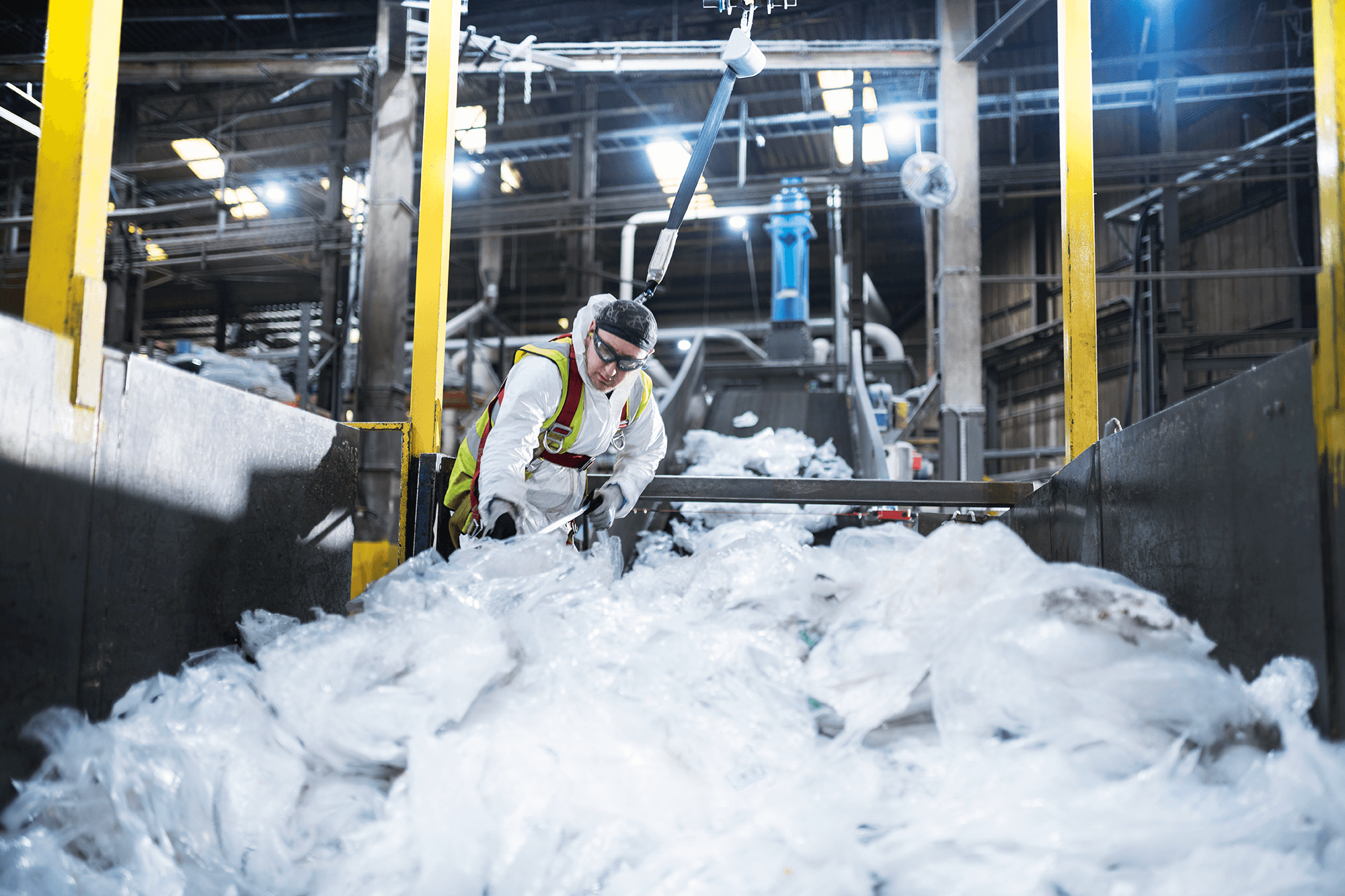
What is the Difference Between LDPE and HDPE Plastic?
The world is changing as an increasing percentage of the population are alerted to the effects of climate change. This has inspired many to start taking more responsibility for their actions by contributing to HDPE and LDPE recycling processes as they realise the role that we can all play in taking control of this long term global threat.
Here at Centriforce, we have a proud history as one of the UKs leading recycled plastic reprocessors and manufacturers. For over 40 years, we have recycled waste plastic materials and turned them into class leading products which can be recycled again after their use.
We manufacture a wide range of different products from waste LDPE (Low Density Polyethylene) and HDPE (High Density Polyethylene) plastics, with the differing qualities of the materials resulting in them being best suited to a different range of tasks.
However, we often get asked “What is the difference between low density and high density polyethylene?”. Our latest blog aims to answer this frequently asked question and explain why they are each suited to a differing range of products.
What is LDPE?
LDPE stands for Low Density Polyethylene. It is a soft, light and flexible plastic material which is commonly used to manufacture plastic bags for consumers in addition to insulation and protection for electric cables.
It is the latter of these two uses which is most applicable to Centriforce as we utilise recycled LDPE plastics to manufacture the products in our Stokbord and Tapetile ranges. This includes Stokbord® Cover and Tapetile Cable Protection Rolls.
We choose to use LDPE plastics for these product ranges on account of the high chemical resistance and waterproof qualities which characterise the material.
What is HDPE?
HDPE stands for High Density Polyethylene and is one of the most commonly used plastics in modern society. It is utilised to manufacture a wide range of products including food and drink containers, in addition to outdoor furniture items.
Again, it is the latter of these two options which is particularly relevant to Centriforce, as we use recycled HDPE plastics to create the products in our Duraplas range. This includes material for Duraplas Boardwalks and Duraplas Profile, with both of these products being commonly used to manufacture outdoor structures designed for long term use such as fencing or picnic tables.
Recycled HDPE plastics were chosen for the Duraplas range on account of the materials’ increased durability, which includes its higher chemical resistance when compared to LDPE plastics, in addition to its waterproof qualities. This makes it a stronger material which is perfectly suited to the construction of outdoor structures.
So, What is the Difference Between LDPE and HDPE Plastic?
You may have noticed that we mention high chemical resistance and water resistance as qualities offered by both LDPE and HDPE plastics. This is not a mistake. These are indeed qualities offered by both types of plastic, but there is a difference in the chemical structure of the materials which resulted in us opting to use them for a differing range of products.
HDPE plastics have very little branching in their molecular structure when compared to LDPE plastics. This means that HDPE is an even stronger and more durable material when compared directly against LDPE.
It is for this reason that we opted to utilise HDPE plastics to manufacture products such as Duraplas Profile which are often used to construct outdoor fencing and walking paths; both of which are intended for long term applications.
This doesn’t mean that LDPE plastics are not enduring, the difference lies in their comparative strength and chemical resistance. Products manufactured from LDPE plastics include Stokbord Floor Shield which offers protection for indoor flooring during construction processes. This product can still be utilised repeatedly once washed down thanks to its waterproof qualities; a fundamental advantage when compared to more traditional materials utilised for such tasks which includes plywood.
Our Recycled Plastic Product Range
You can learn more about the products which are available in the Centriforce range by heading over to our recycled plastic products page.
Alternatively, if you would like to speak to one of our experts about our process, products or to find out how Centriforce can help you then you can contact us online or call us on 0151 207 8100.
